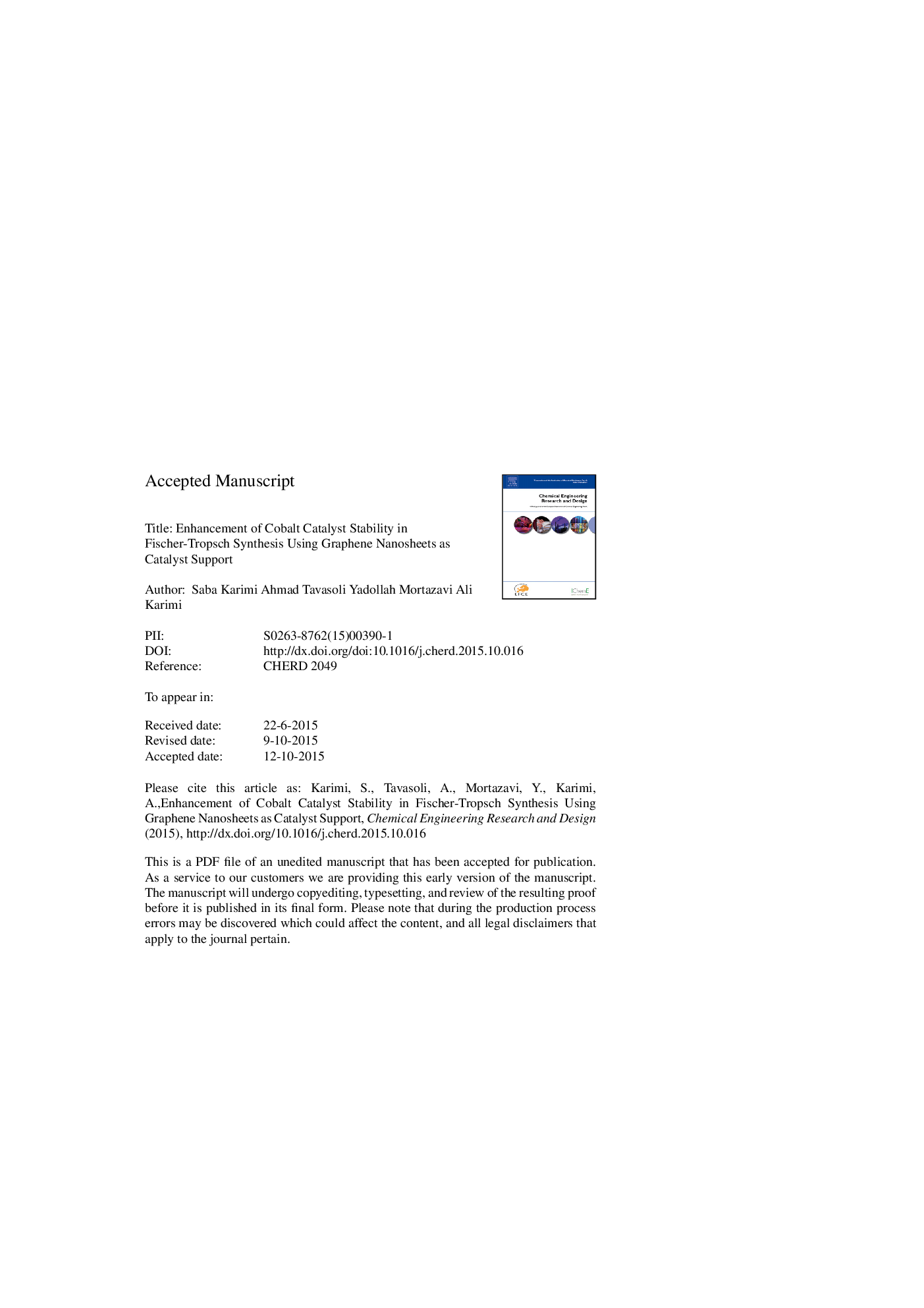| Article ID | Journal | Published Year | Pages | File Type |
|---|---|---|---|---|
| 7007206 | Chemical Engineering Research and Design | 2015 | 34 Pages |
Abstract
The effect of morphology and structure of graphene nanosheets (GNS) and carbon nanotubes (CNT) as support on the stability of cobalt catalyst for Fischer-Tropsch synthesis (FTS) was investigated using a fixed bed micro-reactor.15.0 wt.% of cobalt was loaded on the supports by impregnation method. The deactivation of the two catalysts was studied at 220 °C, 1.8 MPa and 45 STP mL/min feed flow rate. Characterization of the supports, calcined fresh and used catalysts were studied by Raman spectroscopy, BET, XRD, TEM, TPR and H2 chemisorption techniques. XRD confirmed formation of cobalt oxides on the used catalysts. According to the TEM and H2 chemisorption tests, 480 h continuous FT synthesis increased the average cobalt particle size from about 6 to 6.8 nm for Co/GNS catalyst and from about 7.5 to 9.5 nm for Co/CNT catalyst. The initial CO conversion of the Co/GNS catalyst was 12% higher than that of the Co/CNT. For the Co/GNS, 480 h continuous FT synthesis decreased the CO conversion by 3.9%, whereas, under the same reaction conditions the CO conversion for Co/CNT decreased by 20.7%. Regeneration of the Co/GNS and Co/CNT recovered 99.3 and 92.8% of the initial activities of the catalysts, respectively. Significant stability of Co/GNS catalyst in FT synthesis, introduces graphene as an excellent support for the cobalt catalysts.
Related Topics
Physical Sciences and Engineering
Chemical Engineering
Filtration and Separation
Authors
Saba Karimi, Ahmad Tavasoli, Yadollah Mortazavi, Ali Karimi,
